Prof. Dr. Do Trung Ta, born in 1945, was a former member of the Party Central Committee, term VIII, IX, Deputy Director General of the General Department of Posts and Telecommunications , Chairman of the Board of Directors of Vietnam Posts and Telecommunications Corporation and Minister of Posts and Telecommunications. As the head of the postal industry more than 20 years ago, he participated in many important decisions, fundamentally changing the Vietnamese telecommunications market. One of them was to promote competition and establish new businesses to participate in the telecommunications market.
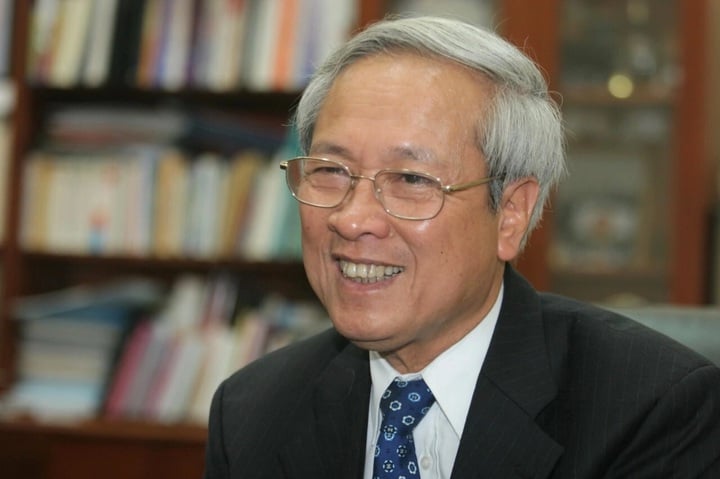
Mr. Do Trung Ta, former Minister of Posts and Telecommunications. Photo: Duc Huy
- In the early 1990s, mobile phones were a luxury item, reserved for the rich. What made the device become popular after only a few years?
- That was the period when the postal industry had just finished its acceleration period (1993-2000). From an outdated analog telecommunications network, Vietnam had completely digitized; telephone density increased from one phone per 100 people in 1995 to 4.2/100 in 2000; Vietnam Internet was launched in 1997. The formation of a market economy within the postal industry was ripe for reform and opening up to competition.
At that time, mobile services were still a luxury item. Connection fees and telecommunication fees were high compared to average income per capita, so they mainly served businessmen and managers. But this changed in a short time, thanks to the industry's breakthrough decision to abolish the monopoly, open the telecommunications market, GSM roaming network to the world and Viettel mobile network was born in the early 2000s, creating competition.
As soon as the telecommunications market opened, the price dropped rapidly, making "mobile phones as affordable as rice for the common people", "farmers have mobile phones in their waistbands", and the opportunity to access telecommunications services spread from urban to rural areas. This is a proud step forward for mobile networks and a success in the state management of the postal sector.
- To create competition, you had to accept breaking the monopoly of VNPT - where you held the role of Chairman of the Board of Directors at that time. How difficult was that decision?
- The VNPT Board of Directors at that time completely agreed with the policy. Many people thought I would protect the interests of VNPT, but then they saw that Viettel had the exclusive right to exploit VoIP - a calling service via IP protocol for two years, even though VNPT had prepared for this service early. That cash flow helped Viettel have accumulated capital to invest in mobile networks later.
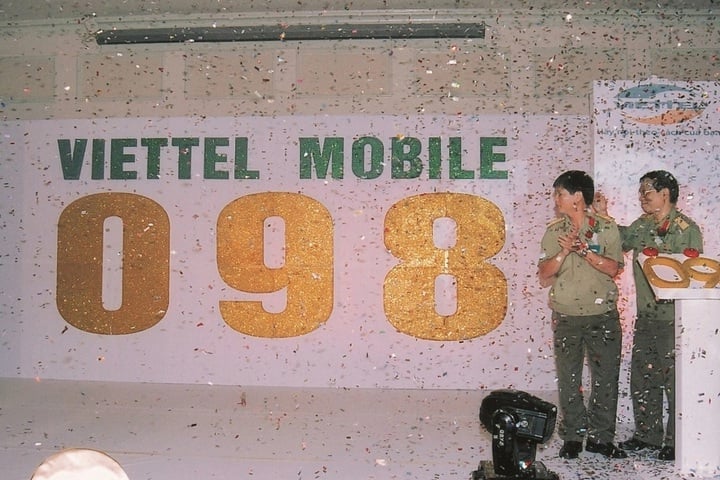
Viettel officially launched its mobile network with the prefix 098 on October 15, 2004. Photo: ST
- How has post-opening competition affected the appearance of Vietnam's telecommunications industry?
- The power of competition can be seen immediately, the telecommunications market is expanding, services penetrate into the countryside - where few people paid attention before. The second impact is to promote the internal development of companies. VNPT has not decreased revenue and profit.
If the monopoly is maintained, the market will stagnate. When a new company is established, the old company must improve its innovation capacity and do better, more efficiently, and more responsibly. Adding a new company is an additional driving force, VNPT must also innovate a lot.
Not only do people and businesses benefit, the State also has additional revenue. The competitive spirit becomes an internal driving force, pulling the entire postal industry forward.
- Along with opening the market, why do you also firmly defend the choice of GSM mobile network technology instead of CDMA?
- This is the period when Vietnam is at a crossroads in mobile technology, between two standards: GSM (Europe) and CDMA (USA). Since the 1990s, GSM was introduced to Vietnam, and the appearance of CDMA at that time was not appropriate.
CDMA has many technical advantages, but it has not been commercialized globally, only in a few markets such as the US, Japan, Korea, Hong Kong (China). Our view is that telecommunications must be advanced, compatible, and global. Telecommunications is an economic sector, not a purely technical sector, so technology must be integrated into the economy.
If we pursue CDMA 2G, we will be costly, have difficulty integrating to 3G and fall into the situation of "the latter kicking the former" when the old investment infrastructure has not been fully depreciated. In fact, 5 years later, CDMA 2G closed in Vietnam.
The results of this were clear. By the mid-2000s, GSM mobile technology had absolutely prevailed with the advantage of cheap equipment and a wide global network coverage, contributing significantly to the development of mobile subscribers.
- During your time as an industry "commander" and having to make many important choices, is there anything you regret?
- A lot. I once cherished the project of buying planes for the postal service to transport goods and passengers from North to South, and to cooperate with Hong Kong to use 800 of their cars as taxis and to transport goods, but in the end it did not work out for many reasons.
Another regret is that the postal sector missed the opportunity to include the word "technology" in its name twice. We once proposed to establish the Ministry of Posts, Telecommunications and Information Technology, on the basis of the General Department of Posts. The second time, we requested to change the name of the Ministry of Posts and Telecommunications to the Ministry of Information Technology and Communications. Both times, the National Assembly rejected the word "technology" because it could easily be confused with the former Ministry of Science and Technology.
- The postal sector has now become part of the new Ministry of Science and Technology. How do you feel about this change?
- The postal sector has gone through 80 years of glorious history and I am happy that the sector has become the core force, the new strength of the Ministry of Science and Technology after the merger. This is a resonance, because science and technology together with information technology have become direct productive forces.
In the process of building a peaceful, independent, free, powerful country and standing shoulder to shoulder with the world, it is impossible not to mention information technology, innovation and digital transformation. We have devoted all the strength of the postal industry to develop the country's science and technology. This integration creates a new strength, for Vietnam to enter the era of self-development.
There will be many difficulties and challenges ahead. I believe that the new Ministry of Science and Technology will continue to overcome difficulties, go further in the journey of innovation and national digital transformation, contributing to making Vietnam a digital nation with a developed digital economy.
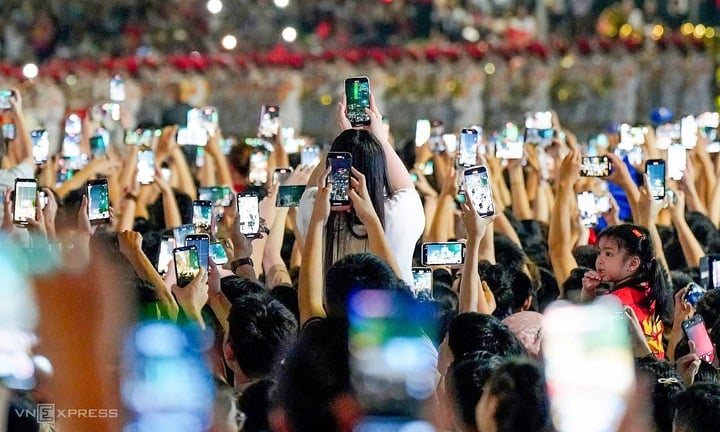
Thousands of mobile devices are used by people at an event in August 2025. By the end of 2024, Vietnam's mobile broadband subscription rate will reach 94/100 people, 4G coverage will reach 99.8% of the population, higher than the average of developed countries in the world at 99.5%. Photo: Nguyen Dong
- As Chairman of the National Council for Science and Technology Policy, head of national programs on information technology and high technology, what do you propose so that research results do not stay in the laboratory but are turned into products serving the economy?
- Take the "enterprise-centric" policy. The general guiding spirit of all projects is research and development linked to commercialization, that is, to reach the output, there must be a final product. The State needs an appropriate mechanism for the contribution of scientists to the research process. In general, always pay attention to the "5Cs": Strategy, Policy, Mechanism, Technology and People.
The government has just issued a list of 11 strategic technologies. Enterprises participating in this program cannot only make products to serve a single ministry or locality, but must create comprehensive products and services with dual-use capabilities, serving the whole country.
- Having wondered about the "4 transformations" in telecommunications, in your opinion, what "4 transformations" do we need in the present era?
- In the past, I struggled with the "4 transformations" of telecommunications: network intelligence, human resource intellectualization, business globalization and life standardization.
Now, in the digital age, I believe that Vietnam needs another "4 transformations": smartening digital infrastructure, intellectualizing human resources, globalizing potential, and standardizing digital society. That will be the foundation for us to enter a new stage of development.
Source: https://mst.gov.vn/gs-do-trung-ta-ke-ve-quyet-dinh-bien-dien-thoai-xa-xi-thanh-do-giat-cap-quan-nong-dan-197250924082700793.htm







![[Photo] Closing of the 1st Congress of Party Delegates of Central Party Agencies](https://vphoto.vietnam.vn/thumb/1200x675/vietnam/resource/IMAGE/2025/9/24/b419f67738854f85bad6dbefa40f3040)


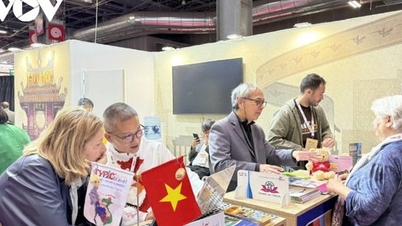
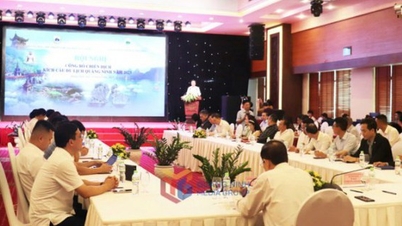
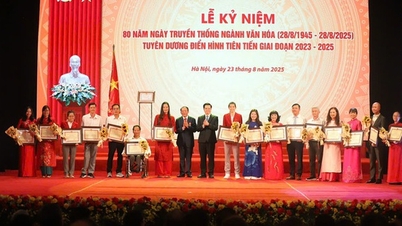






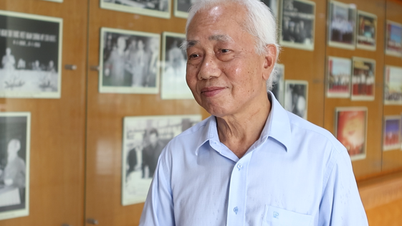

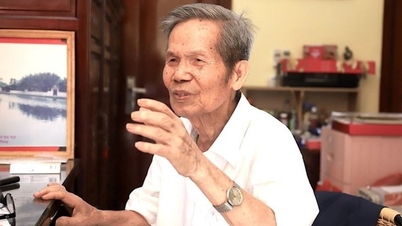



![[Photo] Editor-in-Chief of Nhan Dan Newspaper Le Quoc Minh received the working delegation of Pasaxon Newspaper](https://vphoto.vietnam.vn/thumb/1200x675/vietnam/resource/IMAGE/2025/9/23/da79369d8d2849318c3fe8e792f4ce16)
























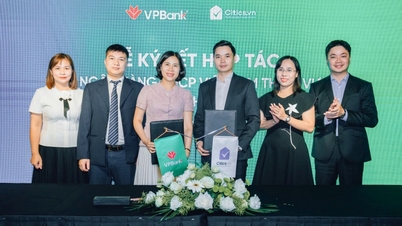









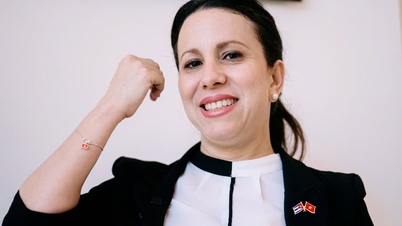


![[Photo] Solemn opening of the 1st Congress of Party Delegates of Central Party Agencies](https://vphoto.vietnam.vn/thumb/402x226/vietnam/resource/IMAGE/2025/9/24/82a89e250d4d43cbb6fcb312f21c5dd4)


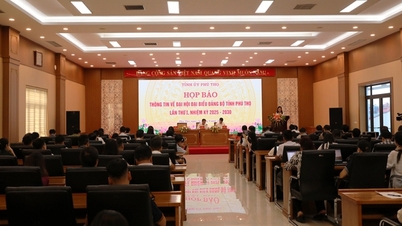
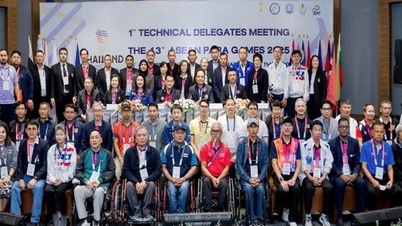





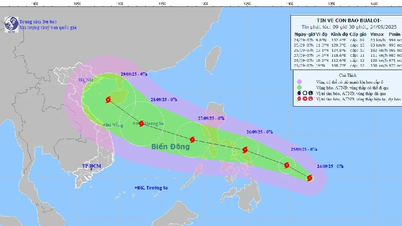

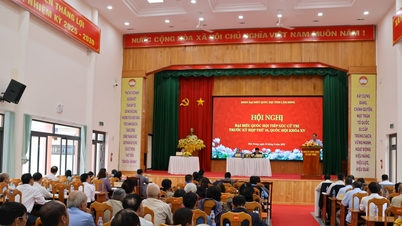





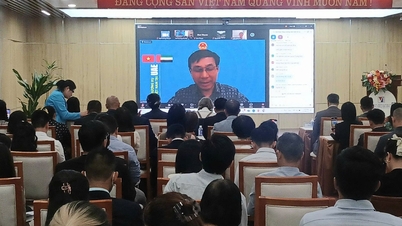












Comment (0)